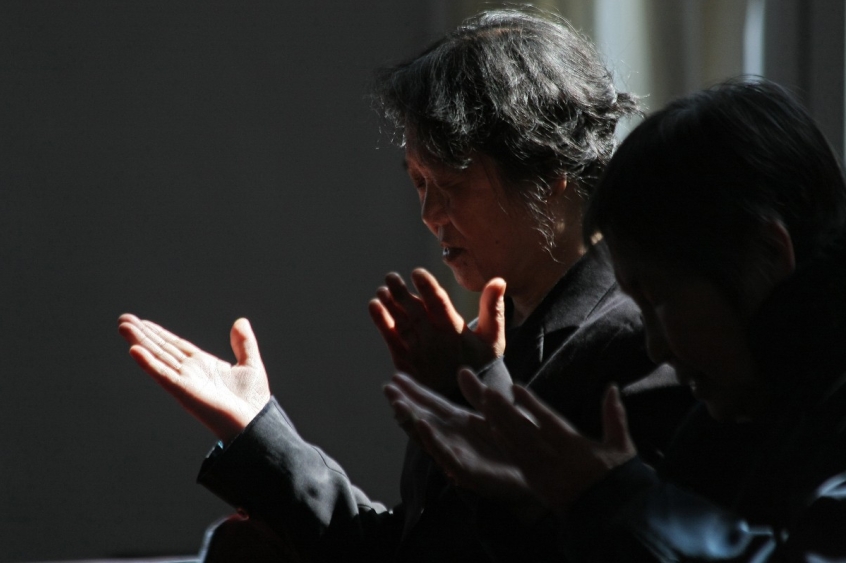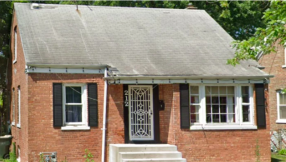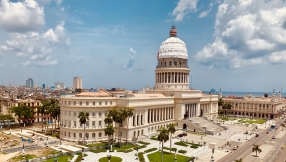
Xi Jinping looks set to be waved through as Secretary General of China's Communist Party on Monday for another five years. He has been in power for ten years now and there are signs that Xi is set to effectively become 'President for life' until he chooses to retire.
Commentators are saying that Xi has the tightest grip on the reins of power of anyone since the days of the notorious Chairman Mao, a man responsible for the deaths of tens of millions.
While Xi's rule is far from the barbarous reign of Mao, the two men have much in common, in particular, a strong aversion to religion. And, in the last few years especially, China's roughly 100 million Christians have felt their already-limited freedoms slowly being erased.
"In the current environment, the control over house churches is getting tighter and tighter," says Noel, a pastor from southwest China.
"Many house churches do not have the chance to gather and meet publicly. With the pandemic, the situation is getting worse. House churches are forced to cease operating."
Open Doors' Persecution Analyst for Asia, Thomas Muller, said, "The CCP is increasingly paranoid in its control of China and its citizens.
"You need to see everything they do though the lenses of security and control. You can see that in the way they have enforced draconian Covid restrictions across the country, and you can see it in the way that religious communities are restricted, harassed or even shut down."
The controversial "Zero Covid" regulations are seen by many Christians as partly an excuse to extend their control over the lives of its citizens even further.
"Against this backdrop, most churches must meet online or meet in small groups with only a few people," says Suyi, an Open Doors partner researching the current state of religious freedoms in China.
"Some churches, such as those in the countryside have been instructed to stop meeting altogether.
"Leaders in the village even have right to obstruct the gathering."
According to Thomas Muller, the pandemic has come in handy for the Communist Party: "It came quite naturally to them to make these churches stop without having to shut them down with force or violence.
"When other parts of society reopened, they were allowed to meet again. Christians from the unofficial house churches were simply not allowed to meet anymore."
The result is that China's "house churches" - which originally met in homes, but eventually moved into commercial premises as congregations swelled into hundreds or even thousands - are being driven to meet in houses again, to avoid surveillance and closure.
"Churches have broken into small groups, where only few families meet each other every time," says Noel. "This has become the new normal."
This presents big problems for the long-term spiritual growth of the church, as Thomas says: "One of the big questions right now is if, if you have the churches to split up into small groups, you naturally need leaders for each group.
"So where do you find these hundreds of small group leaders from? How do you equip them so that they are trained well and sharing sound, healthy teachings?"
Indeed, the job of a Christian leader is, in many ways, an unenviable one, as Noel admits.
"For us, as a pastor or an evangelist, the challenges we are facing are big because of government pressure.
"Last week, I received several phone calls from the authorities. They asked me a lot of questions about my work, and they also asked me to go to the police station multiple times to record statements.
"Another example: my child was part of a Christian chat group. We have no idea how his school teacher knew about it, but he demanded my child leave the group. His teacher met him a few times and advised him to cut his ties with his church. He even told him that if he wanted to graduate smoothly, he should avoid any church activities."
Churches are also being told not to let young people attend their Sunday services. Even officially sanctioned Three Self Party Movement churches have been told to stop Sunday School activities.
"We are being controlled," says Noel. "Some pastors have already left the region. Some local pastors have given up on their work. Sometimes I feel lonely. Sometimes I feel pressured.
In short, as Thomas Muller puts it, "The space in which Christianity can legitimately exist is slowly shrinking."
However, he adds, this does not necessarily mean that the growth of Christianity in China will necessarily be stemmed.
"Chinese citizens are increasingly looking for meaning, especially with economic stagnation and a lack of jobs. And this is something that, that even the communist party has acknowledged.
"Their answer is 'if you have to have a faith then please let it be the Confucianism, which is indigenous to China and stresses obedience to leaders. However, for many Chinese, this isn't enough. Christians have a real alternative," he said.
And, even more important, says Noel, is that as they become more isolated, that we don't forget them and their needs: "Please keep praying for the believers to have strong faith and continue to meet under this continuing persecution."
Muller agrees: "Believers are adapting to this new normal. They are cautious, but they are not all fearful. What is crucial for them is to know they are not forgotten because there are fewer and fewer possibilities for them to interact with the, with the international body of Christ. So, any way we can keep messages of support reaching them, the better."













